“The city would benefit by (1) selling the condos and getting repaid most or all of its investment and (2) using the sales proceeds to fund other housing options.”


“The city would benefit by (1) selling the condos and getting repaid most or all of its investment and (2) using the sales proceeds to fund other housing options.”
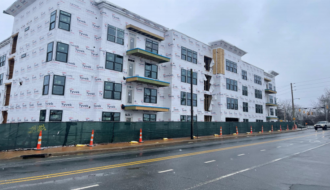
Upcoming projects include initial steps to expand Deaverview Apartments into a “purpose-built” community and an 80-unit apartment complex for people experiencing chronic homelessness.
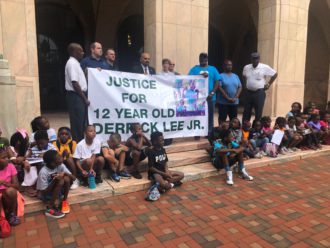
Asheville City Council member Vijay Kapoor announced the naming of the playground, which will be built as a part of the Asheville Housing Authority’s renovation of Lee Walker Heights. Lee was shot and killed at Lee Walker Heights on July 1, 2018, and his murder remains unsolved.
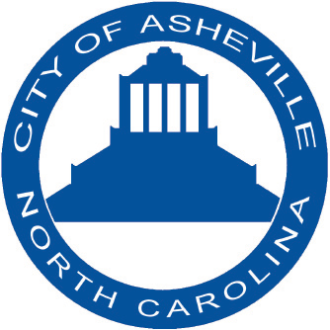
Asheville City Council will be asked to add its piece of a $39.7 million redevelopment puzzle on Tuesday evening. The 2016 General Obligation Housing Bond will provide $1.82 million, while $1.38 million will come from the city’s general fund and $1 million will be spent from the Affordable Housing Capital Improvement Program.

“Where is the questioning and outrage about this and other fatal shootings of area young people, especially those in public housing? “
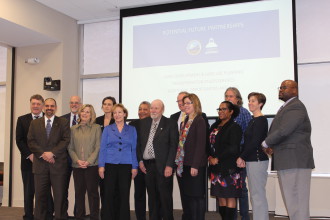
2018’s annual joint meeting of Asheville City Council and the Buncombe County Board of Commissioners highlighted issues of racial equity, police use-of-force and zoning conflicts affecting Buncombe residents.
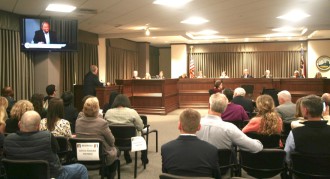
On Tuesday, Feb. 20, the Buncombe County Board of Commissioners heard a presentation by state Rep. Chuck McGrady about a new committee to study regional water and sewer districts.
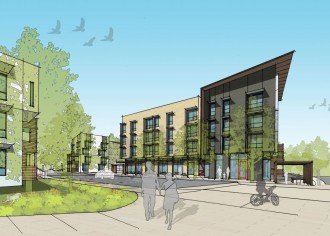
Buncombe County will pledge $4.2 million toward the redevelopment of Lee Walker Heights and consider trying to completely run on renewable energy by 2027.
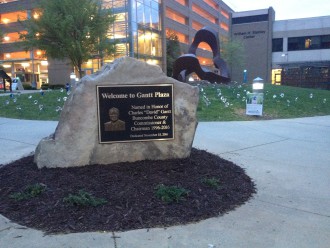
The Buncombe County Board of Commissioners approved an economic incentive package and struggled with a rezoning request that highlighted zoning’s gray areas.

The Buncombe County Board of Commissioners may be in for a long night when it confronts a full agenda at its Tuesday, April 18, meeting. Commissioners will hear presentations for two grant requests totaling $6.2 million, and consider approval of an economic development incentive package worth $881,960. Commissioners will also hold public hearings on two […]
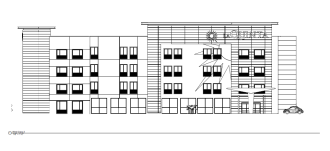
Asheville’s Planning & Zoning Commission approved a 74-room hotel on Sweeten Creek Road, an increase in the number of units included in the proposed redevelopment of Lee Walker Heights, changes to the cottage development ordinance and upgrades to a county waste transfer station on Hominy Creek Road. The commission met on April 5.

“If the Western Carolinas Modernization and Expansion project was truly a ‘modernization’ project, then Duke Energy Progress would not be trying to cram 100-year-old, air-cooled, ugly substations into the downtown urban core.”

The Housing Authority of the City of Asheville learned on Monday that it won’t get nearly $17 million of tax credit financing to support the planned redevelopment of the Lee Walker Heights public housing community — at least not this year.

At its April 26 meeting, City Council approved a rezoning request and committed $4.2 million in city funds to allow the Lee Walker Heights redevelopment project to move forward. Council also approved a Memorandum of Understanding with Duke Energy which gives the city the option to purchase the former Matthews Ford property adjacent to Lee Walker Heights at any time over the next eight years.

From horse carriages to multi-million dollar capital projects, City Council will consider a wide range of issues at its April 26 regular meeting.
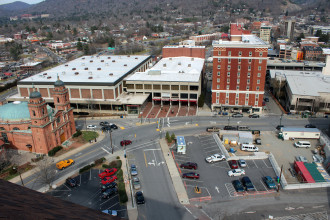
Asheville City Council approved a public visioning process to solicit broad community input on the future use of city-owned property across from the U.S. Cellular Center and the Basilica of St. Lawrence. Council also voted to demolish a city-owned building adjacent to the area at 33-35 Page Avenue. The building was the headquarters of the Asheville Sister Cities organization before the structure was condemned in November last year.
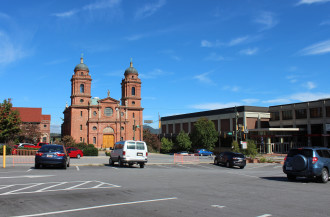
While the theme is familiar — what to do with city-owned property facing the Basilica of St. Lawrence and the U.S. Cellular Center? — the current proposal has a twist: let the whole community weigh in on the future of a beloved, yet contentious, space.
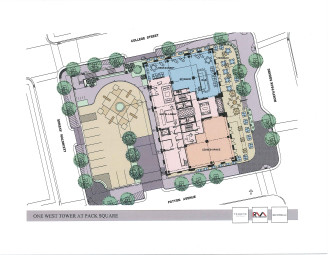
On Tues., January 12, City Council will turn its attention to matters including naming the second Monday in October “Indigenous People’s Day,” voting on the redevelopment of the former BB&T building as a luxury hotel and considering a resolution declaring the redevelopment of the Lee Walker Heights public housing community a “redevelopment project.”
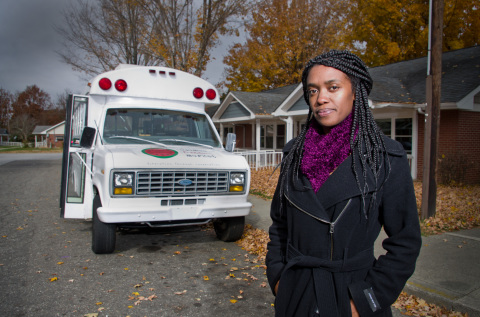
How does Asheville, one of the busiest tourist hubs in the state — a place where you can’t throw a rock without hitting a chef or a farmer — have so many people lacking access to good food or outright going to bed hungry?
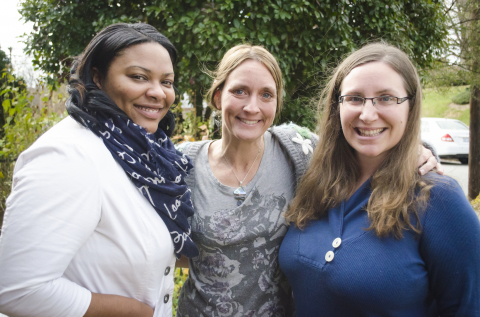
Working in collaboration with Housing Authority residents and the Women’s Wellbeing and Development Foundation, a group of Mars Hill University undergraduate social work students will spend a semester interviewing and filming public housing tenants before assembling their footage into a short film. The idea is to increase a sense of connection in a city where public housing communities are physically and socially isolated.